
In Praise of Zadie Smith's London
Ten British Writers Find Themselves in NW
This year needed Zadie Smith. 2016 was crying out for her particular clarity in describing identity, race and class relationships, and intimate lives in modern London; her illuminating essays on politics and culture—time to (re)read her Brexit essay if you haven’t already—and her mind-blowing literary brilliance, fantastic humor, and fascinating persona. For many of us, the publication of her new novel, Swing Time, has definitely been the best news of this fall.
At a recent reading in London, Smith reflected on the hype around her, saying that she writes “for two years and I come out for two weeks,” adding that online praise and clamor are all very well but “that’s not my life.” Be that as it may, the fandom she generates is uniquely reverential; it feels closer to that of a movie star (a very civilized one) than to an author. It was her first event presenting Swing Time, organized by the London Review of Books and sold out long ago, and packed with a diverse, mostly female, mostly young audience. The room brimmed with love, hope, and calls for action. Some of the attendees let me know why they were so excited. “I love the way she raises the everyday to something beautiful, with such skill and such love in each of her characters,” said Arenike, 20, a Cambridge University student. “I’m half Nigerian. Growing up there weren’t really that many mixed-race women around. There were black women, white women to pick from, but there wasn’t anyone I saw that looked like me who was doing really well, until I discovered her,” said Kirsty, 23.
“I was really excited when she said she’d written the book for black girls,” said Sara, 35, who remembered reading White Teeth when she was 19. “Until she came along, I didn’t have a literary figure that belonged to me, as a black British woman; someone who talked about London and its ‘multiculturalism’—which is something I would definitely put in air quotes—the way I experience it. So her work means affirmation, and it’s a space where you can discuss your identity without being defensive about it. A lot of books talk about a black British experience when they’re outside of it, as though you’re an experiment. I was born here, I didn’t choose it; I didn’t choose my blackness, I didn’t choose my Britishness. It was really good to read it at 19, because that’s what was in my head. It was the first time I really thought of myself as a fact, as opposed to a project.”
Wanting to hear more about how Smith influenced fellow writers, we asked ten writers in Britain to tell us what Zadie Smith means to them and how her work and person influenced them.
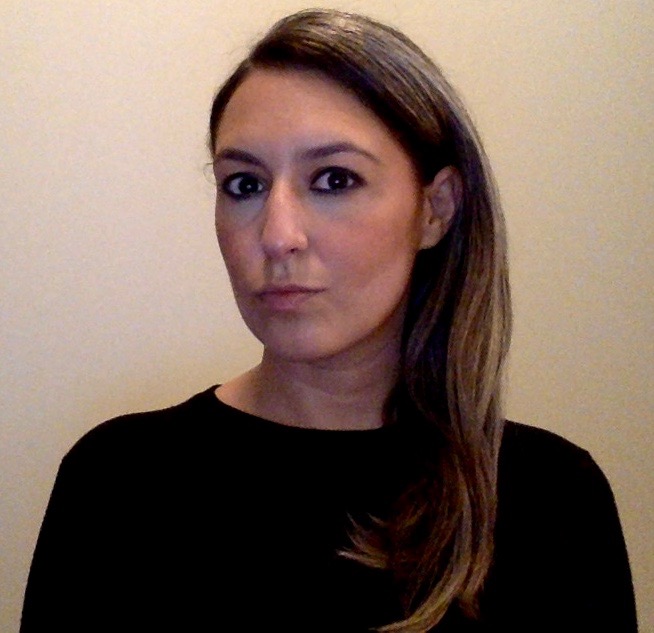
Chimene Suleyman, poet
I have fallen in love with a man called Felix. He is, of course, in NW—a man from North London who knows to speak in my language. That is to say, I have learnt (as many of us do) to talk with a kind of care that placates our industries, and schools, our media. But to Felix, you are blud and fam—and you know Felix: you grew up with him—many of him. You went to school with Felix. You met him at a UK Garage night in 2003. He ordered a pint beside you in your local once. Felix is London, unashamedly, unequivocally London, and he is every boy you grew up with—and he is you, when you are not afraid to speak in your own accent.
Zadie Smith’s ability to take your world and write it back to you, is unlike any other. As my city changes in a time of right-wing politics, overt gentrification, and aggressive corporatism, Smith keeps my home alive. She preserves our London, our words, and all the people we grew up with, like Felix.
Chimene is on Twitter: @chimenesuleyman
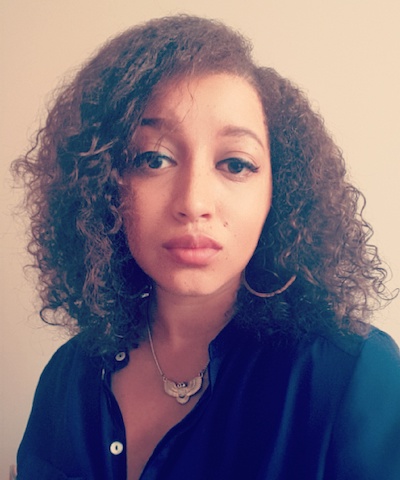
Alex Sheppard, writer
I don’t remember how I stumbled across Zadie Smith, but when I found out about her, I felt an intense jolt of kinship. She had a Jamaican mother and English father, like me. She grew up in a North London council flat, like me. She was a writer, like I aspired to be. To a bookish teenager, these facts were important.
I was an avid reader but it wasn’t until I read White Teeth that I saw myself, a brown working-class girl, reflected in literature. I hoovered up Zadie’s novels. I sought out essays, short stories, collections she had curated and edited. Everything that she touched, I wanted to read.
Not long after discovering her, I found Zadie’s email address on a corner of the internet and decided to write her a note. The note turned into a gushing declaration of love, but what did it matter, she wasn’t going to read it anyway. When I checked my inbox the next morning, I screamed. She had replied. In her email, she talked to me like I was a fellow writer rather than a slightly obsessive super-fan. That was eight years ago, and I think about it often.
Reading Zadie’s work didn’t make me want to become a writer; I had that ambition since I could hold a crayon. But it did open up the possibility that maybe, just maybe, I could write about people that looked and spoke like me; brown-skinned, beautiful, complicated protagonists. We are not just supporting props or tokens.
I am so grateful to her.
Alex is on Twitter: @alexsheppard
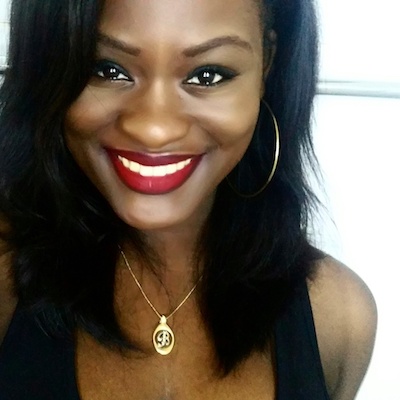
Bolu Babalola, writer and TV producer
I was 20 when I read On Beauty. I knew nothing but the fact that I felt writing in my bones. I dampened instinctual expressions out of embarrassment, tried to constrict to rules, respectability. Then I read Zadie for the first time. Her words embedded themselves within the lining of my mind, the world they conjured printed on the film of my retina. It was the way she wrote. She was cerebral, witty, surreal, gritty—she was everything. And as a black British woman, this was everything. We could stretch our voice and tie it round and through the world as we knew it. I read freedom in her prose. In a world that was always telling me, a second-generation Nigerian-Brit, what I had to be, it was near euphoric learning that in my writing I could just be.
You could be funny and crude and poetic; you could weave politics into domesticity and pop culture into the intellectually lofty. There was no limit to how intricately you twined, no measure for the world you designed. Zadie builds universes within post-codes, constructs terrains for which minds are forced to level up in order to scale; and will be all the better for. Writing wasn’t something to cajole into form; but something innate, to own. Zadie taught me how to listen to my bones. How to be free. In a time where it seems our freedoms are being reneged upon, where it seems insidious forces are grasping at our necks, trying to constrict breath, voice—this is not only a valuable lesson, but a tool.
Bolu is on Twitter: @beebabs
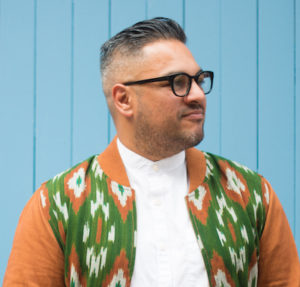 By Shamphat Photography.
By Shamphat Photography.
Nikesh Shukla, author and editor of the essay collection The Good Immigrant
The first time I read White Teeth, I was a student, in a hotel in a foggy off-season Venice, on holiday with an ex-girlfriend. The thing that struck me at the time was it was the first time I’d seen a lot of the slang I’d said and heard in my North-West London suburb written down, in a book. It felt strange at first, then comforting. Flash forward to 2016—it’s been five years since I left London for Bristol. My wife and I settle down to watch the television adaptation of NW [launched this fall on the BBC], a book that taught me so much about writing, structure, tone, character, setting as character, place; and the first shot is of a Metropolitan Line train crossing the bridge that goes over the bit where Shoot-Up Hill meets Kilburn High Road, the train I took home every day after university, every day after my Saturday job.
And I burst into tears. I felt homesick. That’s the power Zadie Smith has over me. She’s one of the few writers who has been able to write about the London I grew up in, complex, multicultural London, lived-in London; not tourist London, Richard Curtis London where brown or black people barely exist, but my London. She can write about place so well. And she doesn’t live there anymore. I’m hoping that my time away from my home city will help me write a novel that stands up against NW or Swing Time or White Teeth or The Embassy Of Cambodia, about my London.
Nikesh is on Twitter: @nikeshshukla
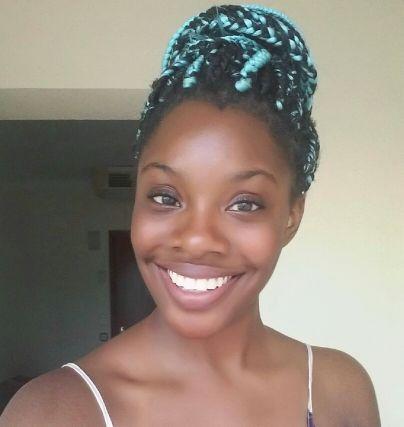
Yomi Adegoke, writer and co-author of Slay in Your Lane: The Black Girl Bible, forthcoming in 2018
Not much that can be said about the ever-exquisite and affecting writing of Zadie Smith that hasn’t already been said. And that in part is why I find her such an inspiration. For me, Zadie’s brilliance lies somewhat in the fact that she is so good, one of the most homogenous, male-dominated and whitewashed industries in the country has had no choice but to acknowledge her splendor.
Here, our most celebrated writers—the ones whose work we annotate and deconstruct at school, the ones whose stories are considered worth the risky business of a print to silver screen transition, the ones whose names are stacked in the various “important people” lists—don’t usually look like Zadie Smith. They don’t write about the Britain I know, they certainly didn’t go to state school and they’re rarely women of color. And yet, with a seat at their very same table, is Zadie, who does and did and is. And that can be a very powerful thing for a young female writer of colour to internalize, even subconsciously.
Zadie Smith allows us to imagine; through her writing, but also through her being. By just existing within that space, so prominently and unapologetically, she permits us to quietly dream of a publishing world reminiscent of the actual world. Her presence alone is a sign saying to young brown girls that the all-too-often alienating world of books is ours, too.
Yomi Adegoke is on Twitter: @yomiadegoke
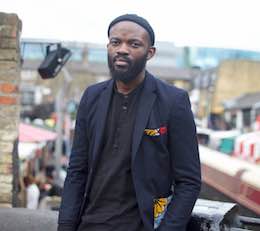 Taylor Kalambayi.
Taylor Kalambayi.
J.J. Bola, poet and author of the novel No Place to Call Home, forthcoming in June 2017
The first time I encountered Zadie Smith’s work was when I read White Teeth many years after it was published, when I saw a poster for the book in east London. I was a latecomer to her work, but once I arrived, I was taken away by how Smith so marvelously and seamlessly portrayed London—quite specifically, North West London, Willesden, an area that I was very familiar with as a teenager—and weaved the intricate experiences of family and community. With On Beauty, NW, and The Embassy of Cambodia, it was the first time that I read experiences relatable to my own, and people whom I knew around me, in the most beautiful form of literature.
It was as though someone had help up a mirror that normalized my reflection, where once I saw it as ugly and erroneous, but now it was beautiful. And it came from a writer so accessible, whose world was not too far from my own. I felt that perhaps one day I too could do the same.
JJ is on Twitter: @JJ_Bola
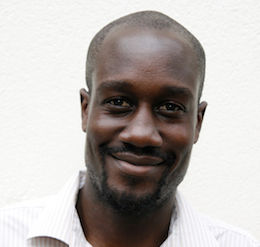
Musa Okwonga, writer
I think that Zadie Smith’s work is exceptional—it has so much warmth, so much wit, so much humanity. She reminds me of Mark Twain or Kurt Vonnegut. She can do more with a single phrase than most writers can do with a whole page, let alone a paragraph. Very few artists who work with words—MCs, biographers, whoever—are masters of either imagery or narrative, but I think that she is a master of both. I also have immense respect for how well she has carried herself under constant scrutiny. It’s obviously hard enough to produce work of the quality that she does, let alone with so much of the literary world awaiting her next work. Yet she somehow seems to manage it, year after year, novel after novel. Though she is still only 41, she is already well on her way to building a legacy, that rare and beautiful thing of which we all dream.
Musa Okwonga is on Twitter: @Okwonga
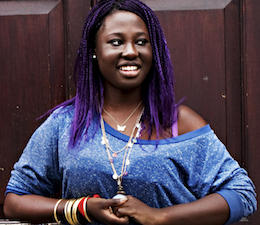
Bridget Minamore, poet
I remember White Teeth coming out—she was everywhere, so pretty, she was from London, and she was black—and seeing her photo and being amazed that she’d written this book and done so well. I was about ten and had read a Malorie Blackman book recently… Which was when I had realized, in a very childlike way, that I’d never read a book by a black woman. Zadie was a not just a black woman but black Londoner, and I remember loving that she existed.
I finally read White Teeth as a late teen, and it had so many things I wanted people to talk about! (The hair shops, colorism, mixed-race families, schools in the inner city, high streets, street preachers, church, and so much more). I went on to study literature and I got quite defensive, faced with the literary community’s tendency to put down anyone who does quite well. I understand that it maybe was a bit much, but she’s talked about how she wanted to fit all these things she was dying to talk about. She did a big service and really set a path for other authors.
I think her writing really does get better. I really appreciate her writing and criticism, possibly more than her novels. I love that she’s teaching at American universities and writing critically acclaimed novels, but unashamedly doing interviews where she’s talking about hip hop, celebrity and pop culture. I don’t think she’s the only person doing that, Marlon James does it as well. It’s a strange one. So many white authors wouldn’t make those connections or talk about the things they like. Maybe it’s because she started writing young, or because she isn’t concerned with keeping up this elitist image, but I can’t imagine Jonathan Franzen coming up and interviewing a musician he likes. It’s nice to show writing isn’t this elite institution you can’t break through if you like watching trashy TV.
It’s always depressing that there aren’t many more Zadie Smiths. Even now, if you think about prominent black British novelists, there’s her, and Malorie Blackman for kids’ fiction. I keep feeling sad that if I was a kid now, I would still only have those two people.
Bridget Minamore is on Twitter: @bridgetminamore
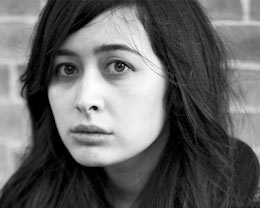
Rowan Hisayo Buchanan, author of Harmless Like You, out in the UK and forthcoming in the US in February 2017
When White Teeth came out, I was a teenager. It was in the school library. It really opened up the types of people you’re allowed to write about. Zadie Smith’s books gave permission to write about something other than white men. She’s one of my heroes. It’s hard to say anything without sounding cheesy or over-the-top. Every time she has a book out it’s really exciting. She’s also one of the most intelligent writers I know, she can do this beautiful emotional fiction and then these really cerebral essays, it’s gorgeous! My novel is about a Japanese artist living in New York in the 1970s and her mixed-race son in the present day. I don’t know what I’m expecting from Swing Time. I feel like with every book she does something new or reinvents it, while still being herself. All I know is that I won’t want to do anything else other than read this book for a while.
Rowan Hisayo Buchanan is on Twitter: @RowanHLB
[This interview was conducted at Smith’s reading].
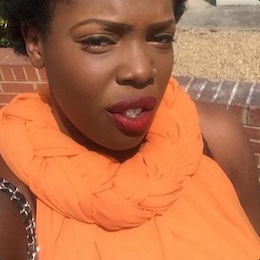
Danielle Dash, writer
Studying English Literature in high school, I became fatigued by the unrelenting whiteness of the books I was reading and, naturally, I became disillusioned with British literature’s exclusivity as it was presented to me. I chose to immerse myself wholly in American books that were readily accessible to me in the Black Writers’ Section in the WHSmith on Peckham Rye. Only within the last few of years have I begun to de-Americanise my mind and discover British authors of color, one of them being Zadie Smith.
Reading NW helped me understand how I’d hobbled myself as a black British woman by ignoring writers like Smith, by denying myself the beauty of her words in a landscape that was familiar to me. I am not Zadie Smith’s biggest fan but she taught me the rest of the world and their authors are important. Britain through black women’s eyes is a literary world not fully explored, and I thank her for opening the gates and my eyes. Her strength and dominating voice in literature allows me also to be strong and dominating in my career with full knowledge that I am worthy of occupying space.
Danielle is on Twitter: @DanielleDASH
Marta Bausells
Marta Bausells is an editor-at-large for Literary Hub. Her work has appeared in The Guardian, Electric Literature, Literary Review and other publications, and she is the creator and former editor of the Guardian Books Network. She lives in London and originally hails from Barcelona. You can find her on Twitter @martabausells.



















